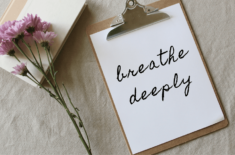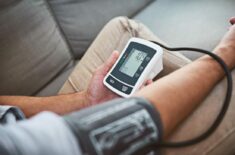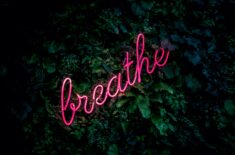Everything you do, you’ll do better with a good night’s sleep.
– Arianna Huffington, author of “Sleep Revolution”
Thanks to chronic anxiety, I’ve battled insomnia and sleep deprivation since my early teens.
I’ve had my fair share of sleepless nights, tossing and turning until the sun came up.
If I was lucky enough to eventually fall asleep, chances were I wouldn’t stay asleep for long.
I’d wake up feeling mentally and physically exhausted and out of it the next day no matter how much I seemed to “sleep.”
My body’s rhythm was all out of whack, and I couldn’t find relief or solutions regardless of what I tried.
And I tried everything I knew at the time – sleeping pills, wine, weed, sleep mask, etc.
Nothing worked long-term.
It turns out I was doing it all wrong.
I didn’t know it then, but many of the things I was doing were actually making my sleep situation worse.
As moms, we know that sleep is a precious commodity that’s sometimes elusive.
It becomes even more important (and yes, challenging) to catch quality zzz’s when you’re looking after little ones non-stop.
A well-rested mama feels betters, thinks better, and mothers better.
You can’t fill others’ cups if yours is empty so try the guided sleep meditation below and allow your mind and body to relax…
Sleep Hygiene & The Sleep Problem Epidemic
I learned about the concept of sleep hygiene, which the American Sleep Association defines as the “behaviors that one can do to help promote good sleep using behavioral interventions.”
It turns out my sleep hygiene was pretty lousy.
So I ditched the sleep aid, weed, and wine before bed and instead researched all the ways in which I could improve my sleep quality naturally.
Of all my research, the most surprising proven sleep hack had been under my nose all along…
Studies show that regulated deep breathing can help lessen the symptoms of insomnia while improving sleep quality. (1)
This is really promising considering that 50% of the adult U.S. population experiences insomnia, with women and the elderly more at risk. (2)
What’s even more concerning is that 9 million of us are having to resort to prescription sleep medication because we feel there is no other way. (3)
So we take these pills that come with a slew of detrimental side effects like the following: (4)
- Memory and focus problems
- Burning or tingling in the hands, arms, feet, or legs
- Changes in appetite
- Constipation/ Diarrhea
- Difficulty keeping balance
- Dizziness
- Daytime drowsiness
- Sleepwalking/ Night terrors
The Dangers of Not Getting Enough Deep Rest
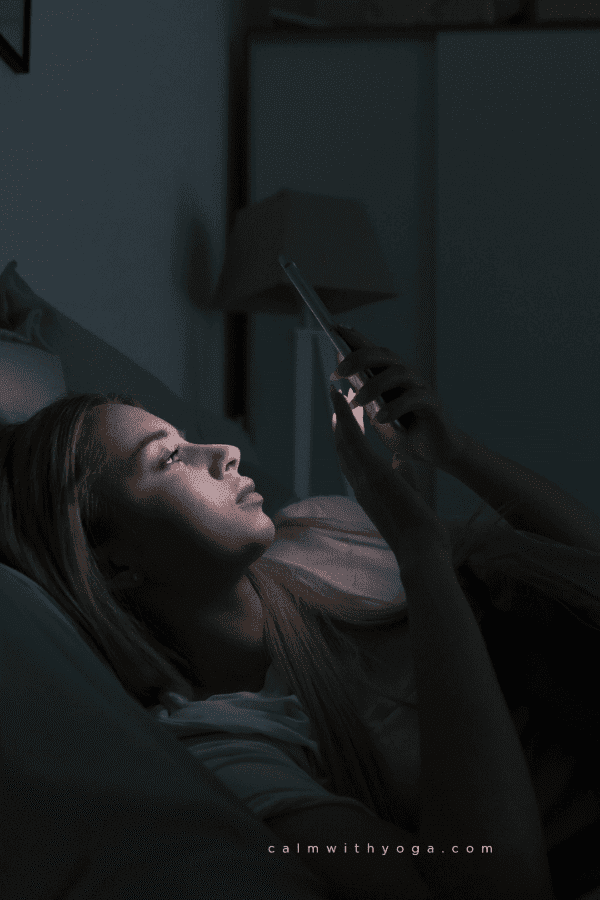
Sleep is profoundly intertwined with virtually every aspect of brain health.
Lack of sleep over time can lead to an irreversible loss of brain cells – yet another debunking of the myth that sleep debt can be made up.
– Arianna Huffington, “Sleep Revolution”
We live in a time where “busy” is glorified and it almost becomes a badge of honor to do more and sleep less.
We pride ourselves on how much we can get done with as little sleep as possible.
And this costs us heavily in the long run.
Chronic sleep deficits and poor sleep hygiene have been linked to the start and progression of a wide range of diseases and conditions such as heart disease, depression, anxiety, obesity, and diabetes. (3)
Not sleeping wrecks your brain’s ability to “cleanse” itself at night, which impacts performance and impairs your ability to think clearly and sharply, react accordingly, and form new memories.
Being sleep-deprived, especially chronically so, can be very dangerous.
One study found that sleep-deprived people did just as badly as drunk people when given a driving simulator and asked to perform hand-eye coordination. (5)
The Top 7 Benefits of Deep Rest

1.Regular quality sleep may help protect the body against cancer, which means quality sleep may help you live longer! One study found that women regularly working the night shift had an estimated 60% increased risk of developing breast cancer.(6) Researchers think this may be due to artificial light exposure, which decreases melatonin levels in the body. Melatonin is the hormone that helps keep our body’s sleep-wake cycles balanced, and it’s thought to help suppress the growth of tumors. (7)
2. Helps support hormonal balance, as deep sleep is precisely when the brain and body secrete important hormones such as human growth hormone (HGH). (8)
3. Deep sleep helps keep your brain healthy, strong, and sharp because that’s the time the brain cleanses out the gunk, plaque, and build up throughout its neurons (brain cells). Think of deep sleep as a sort of floss for your brain’s cells. 😉 (9)
4. Deep sleep leads to increased immune function and a decrease in inflammation. (10)
5.Helps support a healthy metabolism and therefore can help support your weight goals because quality sleep ensures you keep the hunger hormones such as leptin in check. (11)
6.Quality sleep can help your mojo, ladies. A study published in theJournal of Sexual Medicinefound that just an extra hour of quality sleep can increase a woman’s libido by up to 14%. (12)
7. Deep rest also helps keep your blood sugar balanced, thereby protecting you from diabetes. Little or poor-quality sleep wreaks havoc on the hormones responsible for keeping blood sugar and insulin-regulated. Deep sleep seems to counter this. (13)
How Much Sleep We Need According to the Largest Sleep Study Ever
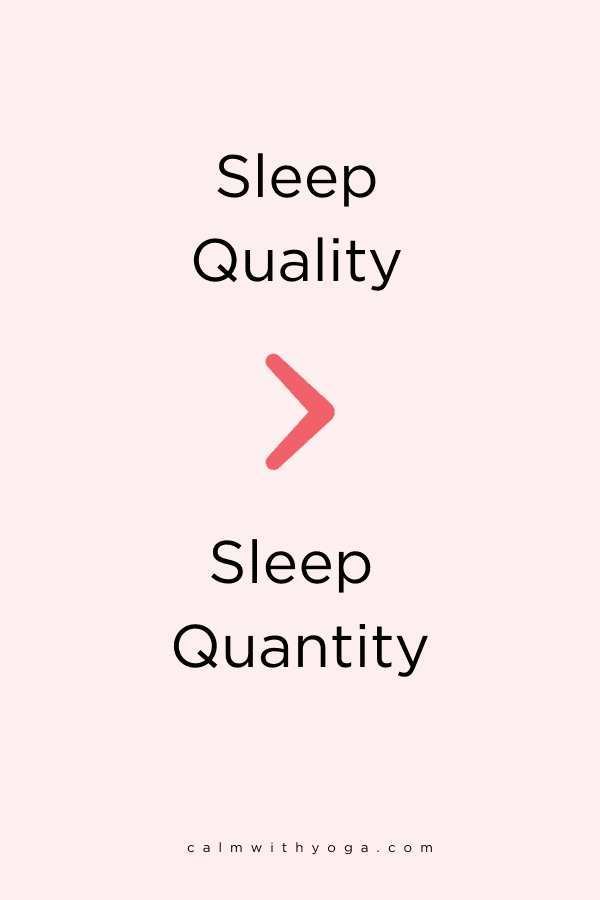
The largest sleep study involved 1.1 million people and showed that when it comes to sleep, it is definitely quality over quantity.
Research results showed that those who slept an average of 6.5 hours lived longer than those who slept the commonly accepted 8 hours. (14)
But there very likely may be other factors at play here so it’s not so black-and-white…
Researchers concluded more studies are needed.
It’s very possible that healthy individuals need less sleep to keep their bodies balanced.
It’s also known that if your sleep quality is high-standard then you may just need less sleep time.
There are things you can do to take matters into your own hands and ensure you sleep better and fall asleep fast:
- Cut off caffeine entirely, or at least from 1 pm onwards.
- Protect yourself from blue light by wearing blue-light blocking glasses, using the night mode on your iPhone, and using an app called fLux on your computer screen.
- Sleep in a cold, dark room.
- Breathe deeply and intentionally
- Meditate regularly – this includes various styles of meditation like mindfulness meditation, yoga nidra, healing meditation,
- Some people use healing music to relax more deeply. (Create your own sleep playlist or search Spotify or Youtube for one.)
- Try sleep hypnosis or self-hypnosis.
Breathing Our Way to Quality Sleep: A Deep Sleep Guided Meditation
Deep breathing exercises serve two purposes… They calm the central nervous system and act as a meditation to quiet the mind.
Breathing exercises calm your nervous system,preparing the body for deeper sleep.
It’s a way to train your brain to start winding down for the night.
Life is hectic, and your brain isn’t just going to flip to ‘sleep mode’ because the clock says it’s time to go to bed.
A simple calming breath can be very helpful in staving off insomnia.
– Jamison Monroe, founder of the Newport Academy
The mind-body connection is real.
High-quality sleep can only come about if the mind and body are calmed down.
A chronically stressed out or anxious mind can lead to sleep disorders.
Regular breathwork (pranayama) practice has been proven to help with symptoms of chronic stress, anxiety, and insomnia.
Breathwork provides a natural form of stress relief and deep relaxation.
Adding this guided sleep meditation to your nightly routine allows you to get better sleep while learning to cultivate a regular meditation practice that works for you.
This is because when done correctly, deep belly breathing helps to send safety signals to your brain and body which helps to turn on your body’s natural calming/soothing/relaxation response while dialing down the stress response which keeps us awake at night.
An insomnia-and-breathwork study out ofNational Yang-Ming University in Taiwan showed that just 20 minutes of slow, deep breathing (six breath cycles per minute) before bed increased sleep quality drastically. (15)
Participants fell asleep faster, stayed asleep throughout the night more frequently, and fell back asleep sooner when they did wake up.
The following is a guided meditation to help you get a good night’s rest and peaceful sleep tonight.

It’s based both on ancient yogic and Buddhist wisdom, as well as modern scientific evidence in terms of what’s been proven to work for deep sleep.
Get comfortable and just allow yourself to take this soothing and regenerative journey.
Use it whenever you’re having trouble falling asleep, or when you just need a good reset to help you calm down:
https://soundcloud.com/calmwithyoga/deep-sleep-session
REFERENCES
:
(1)https://www.frontiersin.org/articles/10.3389/fpsyt.2018.00780/full
(2)https://aasm.org/cdc-analysis-finds-low-rate-of-prescription-sleep-aid-use-in-u-s/
(3)https://www.nydailynews.com/life-style/health/cdc-9-million-americans-sleeping-pills-article-1.1441778
(4)https://www.webmd.com/sleep-disorders/guide/understanding-the-side-effects-of-sleeping-pills#3
(5)Williamson, A. M., & Feyer, A. M. (2000). Moderate sleep deprivation produces impairments in cognitive and motor performance equivalent to legally prescribed levels of alcohol intoxication.Occupational and Environmental Medicine, 57(10), 649-655.
(6)https://www.drweil.com/health-wellness/body-mind-spirit/cancer/can-night-shift-work-lead-to-breast-cancer/
(7)https://www.verywellhealth.com/top-health-benefits-of-a-good-nights-sleep-2223766
(8)https://www.medscape.org/viewarticle/502825
(9)https://www.scientificamerican.com/article/what-happens-in-the-brain-during-sleep1/
(10)https://www.ncbi.nlm.nih.gov/pmc/articles/PMC5768894/
(11)https://www.webmd.com/sleep-disorders/features/lack-of-sleep-weight-gain#1
(12)https://www.eurekalert.org/pub_releases/2015-03/w-ssi031615.php
(13)https://www.sleepfoundation.org/excessive-sleepiness/health-impact/sleep-longer-lower-blood-glucose-levels
(14)https://www.ncbi.nlm.nih.gov/pmc/articles/PMC3010336/
(15) https://pubmed.ncbi.nlm.nih.gov/25234581/




